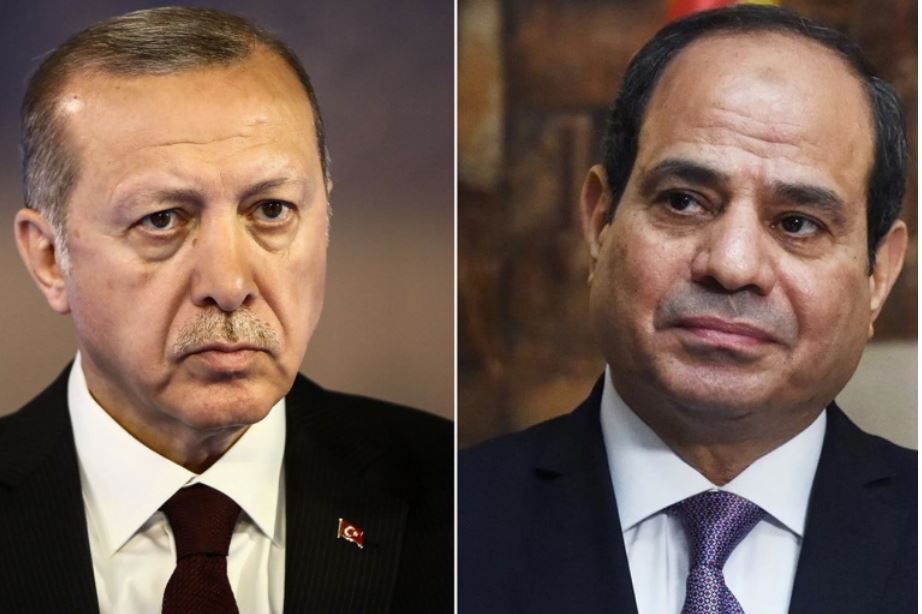Many wonder about the possibility of consensus between Egypt and Turkey regarding the demarcation of maritime borders in the eastern Mediterranean region, and what are the common interests between the two countries in this regard, which may make them overcome their political differences.
Yesterday, Wednesday, Turkish Foreign Minister Mevlüt Çavuşolu said that Turkey and Egypt might negotiate the demarcation of borders in the eastern Mediterranean if relations between them allowed for such a step.
Çavuşolu said that the exploration offers recently put forward by Egypt respected the continental shelf of Turkey, and that Turkey viewed this matter positively.
"# Egypt and # Turkey may negotiate # border demarcation" .. What does the Turkish foreign minister’s statement mean?
pic.twitter.com/0hTxUUPCDa
- Al Jazeera Mubasher (@ajmubasher) March 3, 2021
On this issue, energy researcher Khaled Fouad confirmed to Al-Jazeera Mubasher that there is a great intersection between the interests of Egypt and Turkey in the eastern Mediterranean, indicating that this matter is clearly evident in the agreement demarcating the borders between Turkey and Libya, which provided Egypt with vast areas of pure Egyptian water, which means giving Egypt Greater opportunities for exploration and exploration for oil and gas.
Fouad added that this would block the way for the Israeli efforts to establish what is known as the "East Med" line, which undermines the Egyptian desire to become a regional platform for the export of natural gas to Europe.
He continued, "What happened in the recent period is that Egypt launched a global bid for exploration and exploration in areas on its western and eastern coasts in late February, and what Egypt proposed in terms of the western coasts is very much in line with Turkey's vision of its southern maritime borders."
Learn about the common interests between Egypt and Turkey in delineating the maritime borders?
With energy researcher Khaled Fouad pic.twitter.com/qWrACCzhpt
- Al Jazeera Mubasher (@ajmubasher) March 3, 2021
Khaled Fouad is likely that this would be a unilateral move from Egypt, because international companies' investments in exploration and exploration for oil and gas in general take place in areas far from international conflicts, and therefore it is in Egypt's interest that the areas offered for bid are far from tensions and crises.
Politically, it is believed that both Egypt and Turkey want calm and harmony between them coinciding with the advent of an American administration that has new policies in the Middle East, and therefore it is in their interest to calm the regional situation so that it can face the expected US policy changes.
On the other hand, political science professor Issam Abdul Shafi said that the statements of the Turkish foreign minister are indeed a positive sign, but he does not believe that it is the beginning of the end of the crisis between the two countries, because the crisis has more than one dimension that is not related only to the border demarcation process, but to many other political and strategic files.
"# Egypt and # Turkey may negotiate # border demarcation" .. What does the Turkish foreign minister’s statement mean?
pic.twitter.com/0hTxUUPCDa
- Al Jazeera Mubasher (@ajmubasher) March 3, 2021
However, the very important positive development referred to by the Turkish Foreign Minister, according to Dr. Issam Abdel Shafi, lies in the consensus in the visions in terms of demarcating the borders to allow more coordination between the two countries, and thus is in the interest of the two parties on the level of many issues in the Eastern Mediterranean and the Middle East. generally.
Exploration in the Egyptian coast
In February, Egypt announced a bid to explore for oil and gas in 24 regions, some of them in the Mediterranean.
A few days ago, the Anadolu News Agency quoted Greek newspapers as saying that Egypt had opened the door to understanding with Turkey in the eastern Mediterranean by announcing the auction, which takes into account the borders of Turkey's continental shelf.
The newspaper pointed out that the map announced by the Egyptian government shows that the western regions in the Mediterranean were defined according to the agreement concluded between Cairo and Athens, and also indicates that “the other area (east of the 28th longitude) defines the southern borders of the Turkish continental shelf referred to in the Turkish-Libyan agreement.” .
There has been a dispute between Ankara and Athens over the extension of their continental shelf and the rights of offshore oil and gas resources in the eastern Mediterranean for decades.
Turkey signed an agreement in 2019 with the Libyan Government of National Accord (internationally recognized) on defining the areas of maritime jurisdiction, which provoked the anger of Greece, which rejected the agreement as illegal, and a similar agreement between Greece and Egypt last year also angered Turkey.

